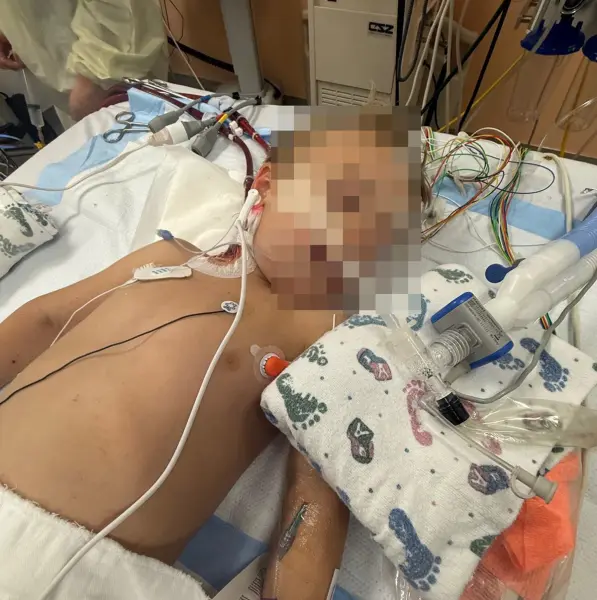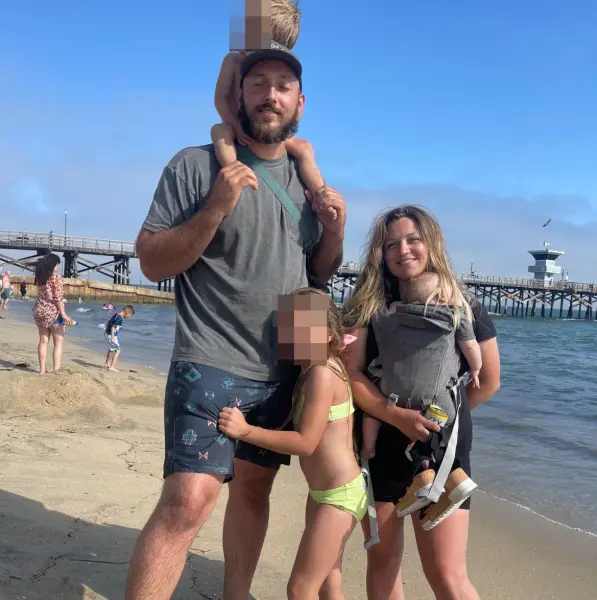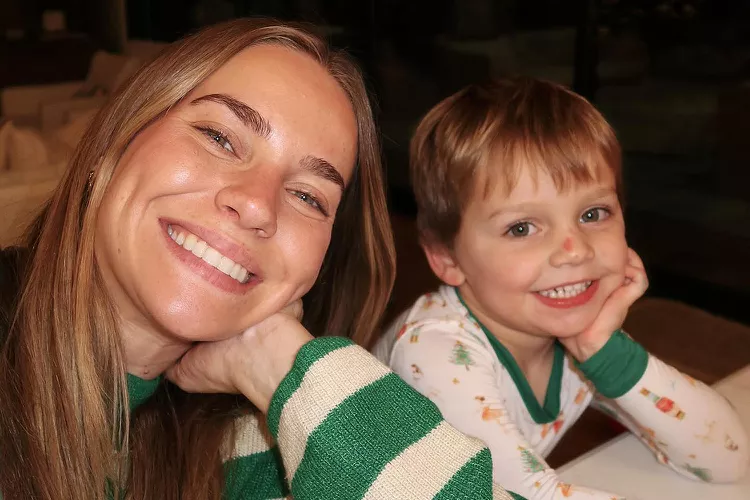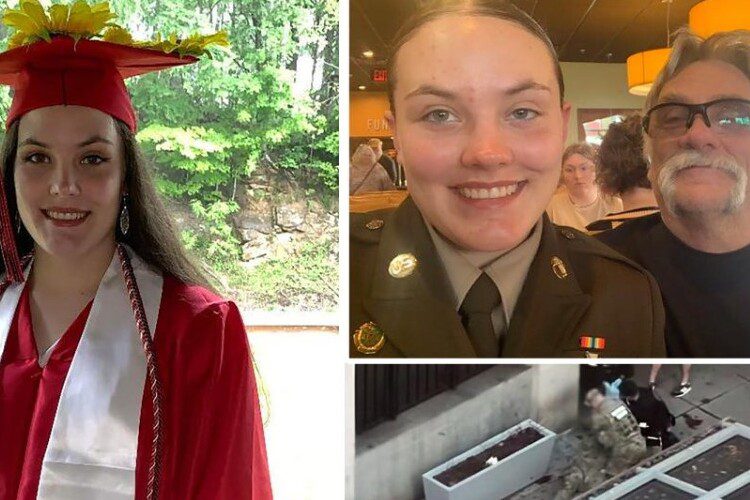“Selfish” Utah Dad Accused of Forcing His Young Children Into a Dangerous Overnight Hike That Left Them Hospitalized — Inside the Chilling Case and the Footage That Sparked Outrage
The case unfolding out of Utah has captured national attention not just because of its disturbing details, but because of how young the children were, how preventable the situation seemed, and how deeply the story has struck parents across the country. Micah Smith, a father of three, is now facing serious charges after authorities say he forced his young children into a dangerous hike that left them exposed to the elements for hours. The situation became even more alarming when cellphone footage surfaced, capturing one of his daughters asking a heartbreaking question no child should ever voice: “Are we going to freeze to death?”

The video, along with emotional statements from investigators and the children’s mother, paints a picture of a night that spiraled far beyond poor judgment — a night that prosecutors now say amounted to torture under Utah law. Smith, who vanished during the hike before eventually being located by authorities, is accused of knowingly putting his children in grave danger during extreme weather conditions that they had no ability to endure.
The story began as a family outing on what should have been a manageable trail, but investigators say Smith led the children — all under the age of ten — into a remote, rugged section of the hike with steep terrain, uneven footing, and rapidly dropping temperatures. As the hours passed and the daylight faded, the situation escalated from uncomfortable to life-threatening. The children, according to police reports, were shivering, exhausted, dehydrated, and terrified.
Now hospitalized in the aftermath, they are recovering physically. Emotionally, their ordeal is something experts say may take much longer to heal.

Authorities who responded to the search-and-rescue call described the scene as one of the most distressing family-related emergencies they had encountered in years. The children were found wearing clothing that was insufficient for the cold conditions, with thin layers that offered little protection against the plunging nighttime temperatures in the mountain region. By the time rescue teams reached them, the kids were showing symptoms consistent with severe exposure. Two of them were rushed to the hospital by helicopter.
The footage that investigators recovered from a cellphone, believed to have been recorded during the darkest, coldest part of the night, has reportedly become a key component in the prosecution’s case. In the video, one of the children can be heard whimpering in fear, asking whether they were going to freeze and pleading for help. Another child is heard calling for their father, who they believed had abandoned them — a detail authorities later said was consistent with what the children described during interviews.
The district attorney handling the case said the evidence paints a picture not of an unfortunate accident, but of a parent who “demonstrated a willful disregard for his children’s safety and well-being.” The charges reflect that position: aggravated child abuse, child torture, and reckless endangerment. Prosecutors emphasized that the term “torture” under Utah law includes situations where a child is subjected to extreme physical pain or suffering due to a caregiver’s intentional actions.
Micah Smith’s friends and extended family have expressed shock, saying the father had always appeared involved and affectionate with his children. But investigators point to evidence suggesting that the hike was not spontaneous and that Smith ignored repeated warnings about the weather and trail conditions. They say he pressed forward despite the kids protesting, claiming they were tired, cold, and scared. The district attorney noted that children of such young ages have limited ability to control their own safety, placing the responsibility fully on the adult accompanying them.

The emotional weight of the case has grown as additional details emerge. Law enforcement officials shared that the children told interviewers they repeatedly begged their father to stop, turn around, or let them rest. At one point, according to a police report, the youngest child was crying so uncontrollably that the siblings had to reassure each other because their father was not responding.
As investigators searched for Smith after the children were rescued, officers said they feared the worst — either that he had suffered an injury himself or that he had intentionally abandoned the children in the wilderness. Hours later, he was located, unharmed, raising further questions about the choices that led to the night’s events.
In court filings, prosecutors indicate that they believe Smith underestimated the severity of the terrain and overestimated both his own abilities and his children’s. But they say the problem is deeper than misjudgment — that the father repeatedly ignored warning signs, the children’s cries for help, and the increasingly dangerous environment. When the family failed to return at the expected time, concerned relatives contacted authorities, triggering the late-night search.
The children’s mother, who has not been named publicly in order to protect the minors’ privacy, has been cooperating closely with investigators. In a statement released through her attorney, she described the ordeal as “the most terrifying experience of my life as a mother” and thanked the rescue team who brought her children home alive. She emphasized that her priority now is their healing and urged the public to refrain from speculation that could make the situation harder on the family.
Medical personnel treating the children said that although the kids are stable, exposure of this severity can leave both physical and psychological effects. Pediatric specialists note that illnesses associated with extreme cold can progress quickly in children, whose bodies lose heat much faster than adults’. Additionally, traumatic experiences involving a caregiver can have long-term emotional ripples, affecting trust, anxiety levels, and feelings of safety.
Experts in child welfare who reviewed the case have highlighted how common it is for dangerous outdoor situations to escalate quickly when young children are involved. They stress that adult decision-making is crucial, as children often cannot judge distance, temperature, fatigue, or risk. In this case, they say, the combination of harsh weather, difficult terrain, and nighttime exposure created a scenario that could easily have ended in tragedy.
Community members in Utah have expressed anger, confusion, and heartbreak over the details of the case. Some who know the family have said they are struggling to reconcile the father they once interacted with and the decisions he made on the night in question. Others say the case underscores the importance of understanding weather warnings and trail advisories, which officials had clearly communicated before the hike.
Smith’s legal team has not released a detailed public statement, but early filings suggest they may argue that the situation was an accident exacerbated by poor weather and a sudden loss of navigation. Prosecutors counter that the timeline, evidence, and children’s testimony show otherwise.
As the case prepares to move forward, the focus remains on the children — their recovery, their safety, and the support they will need in the coming months. Child services officials say they will remain closely involved to ensure the children have access to counseling, medical care, and a stable environment.
For many who have followed this story, the most haunting detail remains the captured audio of a child asking whether they were going to freeze to death — a question no child should ever have to ask. It stands as a chilling reminder of how quickly a situation can spiral when adult responsibility breaks down and children are left vulnerable.
Moving forward, the legal process will determine accountability. But in the court of public opinion, emotions are running high. Parents across the country have reacted with disbelief and anger, imagining their own children in such a frightening situation. Outdoor safety groups have stressed the importance of preparedness and respect for the wilderness. And local authorities have renewed calls for hikers — particularly those with children — to monitor conditions, stay on marked trails, and never underestimate the risks of even seemingly simple outings.
As the investigation continues, the hope is that the children involved will heal not only physically but emotionally, surrounded by people who can help them rebuild a sense of security. Their ordeal has become a sobering cautionary tale — one that underscores both the fragility of childhood and the absolute responsibility adults carry when caring for young lives.


